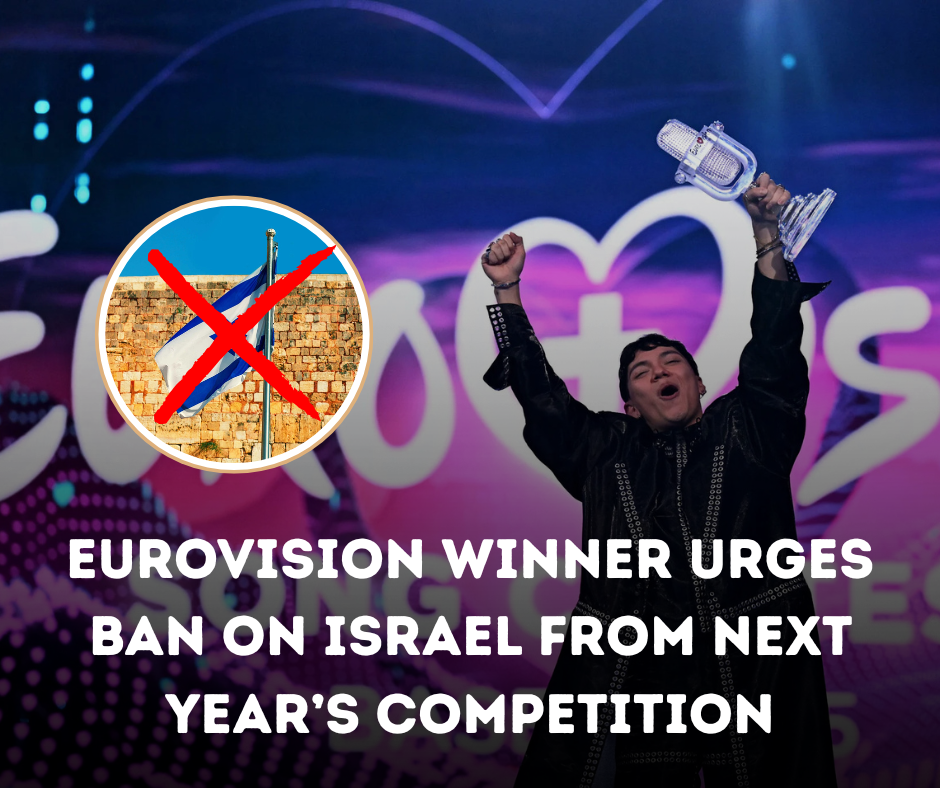Controversy continues to swirl around the Eurovision Song Contest as a former winner has stepped into the spotlight to call for Israel’s exclusion from the 2026 competition. The artist, who previously won one of Eurovision’s most coveted titles and remains a respected voice in the European music scene, argues that Israel’s participation sends a contradictory message at a time when human rights concerns in Gaza are making global headlines.
The call comes in the wake of a tumultuous 2025 contest that saw mass protests, audience walkouts, and growing dissent from both fans and fellow performers over Israel’s presence. Critics argue that allowing Israel to compete while its military campaign in Gaza continues—resulting in thousands of civilian deaths and accusations of war crimes—undermines the contest’s longstanding ethos of peace, unity, and cultural diplomacy.
Speaking during a press conference held shortly after the grand final, the Eurovision winner did not mince words: “We cannot have double standards. If Eurovision took a principled stand by banning Russia for invading Ukraine, then we must show the same courage now. The Palestinian people are suffering under a brutal campaign. Allowing Israel to take part as if nothing is happening is not neutrality—it’s complicity.”
The artist’s comments echo growing demands from human rights organizations, cultural figures, and thousands of Eurovision fans who have taken to social media and public demonstrations to express their outrage. Earlier this year, over 1,000 musicians and cultural workers from across Europe signed open letters urging the European Broadcasting Union (EBU) to disqualify Israel. Some national broadcasters even faced internal pressure to boycott the contest altogether in protest.
Despite the backlash, the EBU stood firm on its decision to allow Israel to participate, stating that Eurovision is “a non-political event.” But critics say this stance is becoming increasingly untenable, especially as the contest is being used as a global stage that inevitably reflects the world’s political climate. “You can’t claim to be apolitical while broadcasting a smiling performance from a country accused of ethnic cleansing,” said one protestor outside the Malmö Arena in Sweden, where the 2025 final was held.
Inside the venue, tensions were palpable. Israel’s performance was met with boos and visible discomfort from both the audience and fellow contestants. Several performers reportedly refused to appear in group segments featuring the Israeli delegation, and some viewers noted that the broadcast seemed edited to reduce visibility of negative reactions.
For many, the situation has highlighted a broader reckoning facing international cultural institutions: how to navigate the intersection of entertainment, politics, and human rights in an increasingly polarized world.
The artist leading the call for Israel’s ban has been praised for using their platform to speak out, but has also faced backlash from pro-Israel groups and critics who argue that Eurovision should remain a space free from political entanglements. “This isn’t about politics—it’s about people,” the artist responded. “Silence in the face of injustice is a political act in itself.”
As the EBU prepares for next year’s contest, it faces mounting pressure to address these growing divisions. Will it revise its policies to reflect the gravity of international conflict, or continue to insist on neutrality in the face of global outrage?
One thing is certain: the road to Eurovision 2026 will not be smooth, and the debate over Israel’s participation is far from over.

Leave a Reply